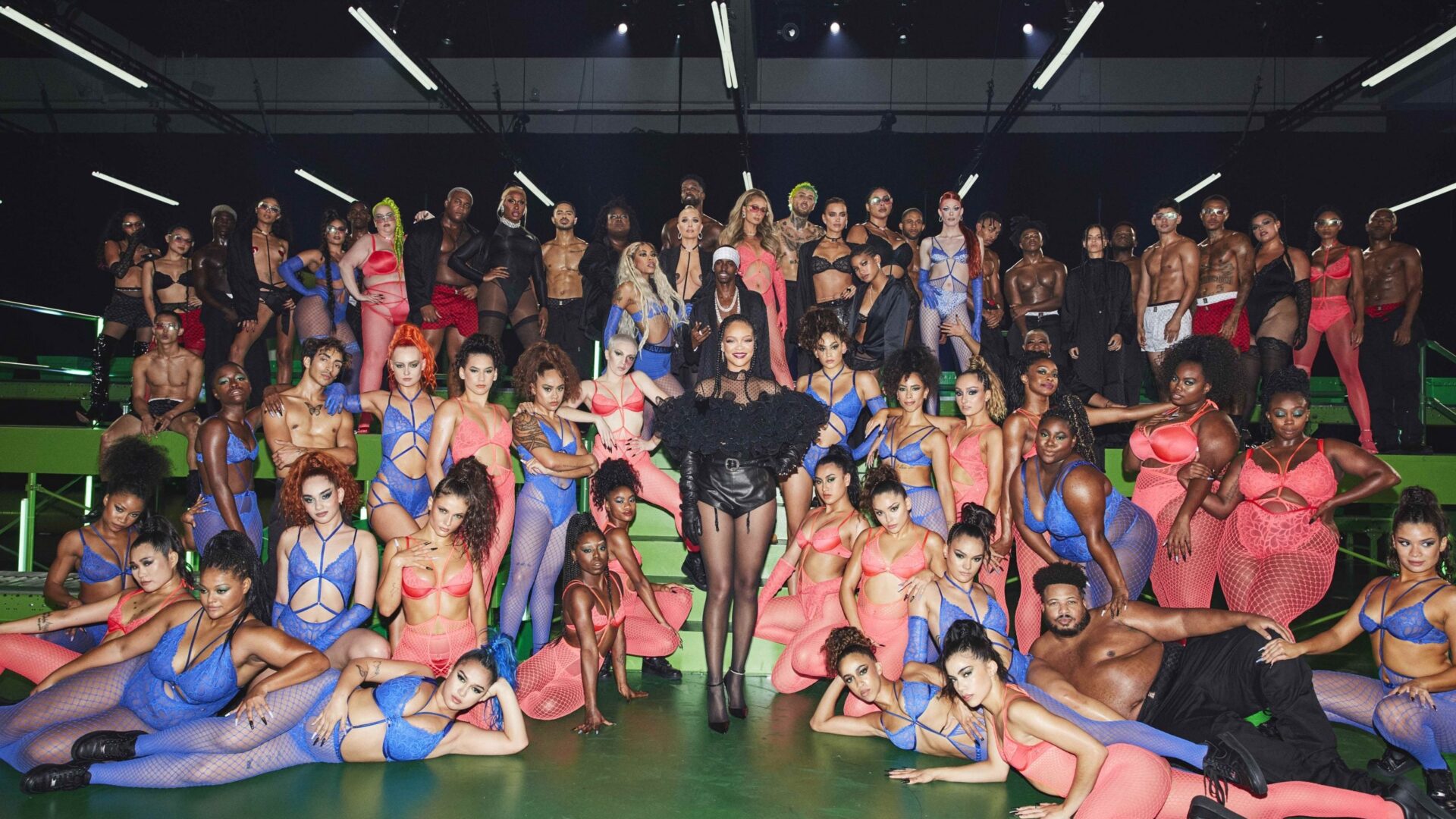
On October 2, fashion fanatics and music stans watched Rihanna’s sleek, living vision for Savage X Fenty, her undergarment collection that pulls on her anti-popular (and highly successful) personal brand. Critics have noted the line is the sole true competition for Victoria’s Secret. The latter once made headlines yearly for its dreamy fashion shows that regularly prioritized taut bodies and now-archaic ideas of femininity, while Savage X Fenty calls upon forms of all types for the revelation of its latest styles.
Exclusionary practices are the backbone of American society. They are how many confidently grant themselves permission to feel superior to others and have allowed ills like racism, misogyny, homophobia and transphobia to become rampant. In 2018, the chief marketing officer of L Brands, Ed Razek, made headlines after telling Vogue that trans women were purposely not included in Victoria Secret’s runway shows. “Shouldn’t you have transsexuals in the show?,” he asked, echoing Instagram comments that likely did not use the term “transsexual.” “No. No, I don’t think we should. Well, why not? Because the show is a fantasy.”
In 2010, CBS reported that Victoria’s Secret had long refused to “use non-white models in its ads and runway shows.” That same year, the brand sent Black women and women of color strutting for a portion of the annual show called “Wild Things,” complete with “tribal” body paint and choreography that was supposed to look indigenous. As less than 15% of the models that night were Black, the display was a bold display of unbridled racism as fantasy. The daydream was an animalistic display of Blackness that has followed us since we were brought to America en masse in 1619.
As of 2020, it is becoming increasingly acceptable to question, and more importantly, challenge the prerequisites for celebrated existence, which are often whiteness, rigid Christianity and heteronormativity. A shining example of such pushback was Rihanna’s second annual fashion show, which has been critiqued, but not for its praise of aged norms.
After an interviewer at Entertainment Tonight asked the pop icon what to expect from the show, Rihanna replied, “Men, women, non-binary [people.] “There’s gonna be an array of personalities and I’m excited to present the new product that we’ve actually been designing since our last show.” Complete with appearances from mainstream and underground favorites, including RuPaul’s Drag Race All Stars‘ season 5 winner Shea Couleé, makeup artist Raisa Flowers, rapper Christian Combs and polymath Willow Smith, Savage’s display represented the power of identity. Blackness, queerness, womanhood, othering, and their intersections, are not hindrances in Rihanna’s world, but rather facets to be proud of.
“Pride” is a sore spot for America as a whole right now—it’s the deadly sin associated with a known hate group that was recently shouted out by the president. It’s also the reason why the president is in office in the first place. Pride in hatred, mingled with faith in exclusion and capitalism. But for America’s long-perceived underbelly, the time and place to be loudly proud is here and now. Savage X Fenty’s latest show tapped into that necessary pride, while showing the power of individuality and shattering perceptions of who deserves a chance to shine.
Photo credit: Savage X Fenty